Public-private partnership: A new model for lasting impact featuring Jennifer Loving and Chuck Robbins
Transcript
[Public-private partnerships: a new model for lasting impact. Jennifer Loving, CEO, Destination: home. A middle-aged white woman with long hair. Chuck Robbins, chairman and CEO, Cisco Systems. Trustee, Ford Foundation. A tall white man with short brown hair, wearing a pink shirt and dark suit. Rebecca Cokley, Founder, Disability Justice Initiative. A redheaded little person wearing a flower print black blouse and yellow herringbone tweed skirt.]
ANNOUNCER: Please welcome Jennifer Loving, Chuck Robbins, and Rebecca Cokley.
[applause]
REBECCA COKLEY: So, Jen, what’s your backstory in this space?
JENNIFER LOVING: I have been involved in homelessness since I was a little child. My uncle was a fire-and-brimstone preacher in Venice Beach and had a big church in the ’60s and ’70s and let anybody stay there who needed a place to stay. So I grew up seeing that that seemed relatively normal. If somebody doesn’t have a place to go, they would go to Uncle Fred’s and they would sleep there. And, as I got older and understood, really, the roots of homelessness and injustice, I got much more involved in—first, running shelters… Um, any good or bad thing, as it relates to homelessness, I have probably done—taken over hotels, you know, organized big things outside, massive shelters. And now, though, finally, for the last, um, seven or eight years, a real effort around a systemic reduction of people that are outside.
REBECCA COKLEY: What have been the challenges in making this partnership that you all have work, and what have been the resources that Cisco’s been able to really bring to the table, um, to be so hands-on in the mission of this work?
CHUCK ROBBINS: Well, we started with—we donated $50 million last year, and, uh, and we just gave $50 million. And, um, the biggest challenge for us is getting other businesses to actually get engaged on issues that, ultimately, aren’t directly beneficial to their business, right? One of the problems, I think, with corporate social responsibility over the last 50 years is that CEOs want to take and talk about all the great things they’re doing, but if you really dig into everything they’re doing—including us—you can draw a line from whatever corporate social responsibility effort there is and benefit to your business. We have a crisis in Silicon Valley around housing, in general, I mean, and we’re—I’m trying to tell my peers, we live in an unsustainable community, and if you can’t draw a line from a healthy community to the success of your business, then you’re just, you’re just missing it.
[applause]
JENNIFER LOVING: $50 million is a lot of money, right? That’s a lot of money. And it’s certainly the most amount of money that I know of being, like, freely given. When you’re talking about solving problems for the most vulnerable, the poorest, the people that, basically, um, no one is generally trying to solve for, you need flexibility. You need to be able to use money in a way that is not traditional. Right? And so, you know, when banks are lending or loan pools are lending, they evaluate risk—and, of course, that’s important. But sometimes you have to be able to take risks that are not traditional. Over the last four years, we have permanently housed almost 8,000 people.
[applause]
CHUCK ROBBINS: And 92 percent of them remain housed.
JENNIFER LOVING: And these are people that have been in our streets in Silicon Valley for years and decades, literally decades. These are people with severe cognitive disabilities, with mental health disorders, with issues that affect, frankly, the entire population—right?—no matter what your socioeconomic background is. But when you have no money and no safety net, those problems occur on the streets, and so they become exacerbated. So, when Chuck gave us the money, he did two things that were so important. One, he already mentioned, but—he gave it to us. And the reason that was important was—there’s not one nonprofit or one entity solving homelessness. Homelessness is a massive humanitarian crisis that has multiple owners—a city, a county, a housing authority. There’s—it requires a systemic collective impact approach, and we have that. But what we didn’t have was private money that could be used really flexibly. So we have this bond and we’re able to build housing, and we’re in the middle of building 120 projects over 10 years. We have 19 projects in the ground in two years already, which is really pretty good for Silicon Valley, in terms of how expensive everything is. We’re using the money from Cisco to be competitive in the market with market-rate developers, tie up land, make these projects go faster. Your money has been a part of seven of those 19 projects so far, and we’re just getting started.
REBECCA COKLEY: Thank you so much, and thank you everybody here today.
JENNIFER LOVING: Thank you.
CHUCK ROBBINS: Thank you.
[applause]
[New gospel of wealth. What does #GenerosityToJustice look like to you? Ford Foundation dot org forward slash new gospel.]
Accessibility Statement
- All videos produced by the Ford Foundation since 2020 include captions and downloadable transcripts. For videos where visuals require additional understanding, we offer audio-described versions.
- We are continuing to make videos produced prior to 2020 accessible.
- Videos from third-party sources (those not produced by the Ford Foundation) may not have captions, accessible transcripts, or audio descriptions.
- To improve accessibility beyond our site, we’ve created a free video accessibility WordPress plug-in.
Chuck Robbins, chairman and CEO of Cisco, and Jennifer Loving, CEO of Destination: Home, discuss how their public-private partnership model is fulfilling its mission to end homelessness in Santa Clara County, California. Moderated by Rebecca Cokley of the Center for American Progress.
“When you’re talking about solving problems for the most vulnerable … you need flexibility. You need to be able to use money in a way that is not traditional. When banks are lending, they evaluate risk. Sometimes you have to be able to take risks that are not traditional.” – Jennifer Loving
“The biggest challenge for us is getting other businesses to get engaged on issues that ultimately aren’t directly beneficial to their business.”
– Chuck Robbins
Learn more about New Gospel of Wealth
Other videos in this series
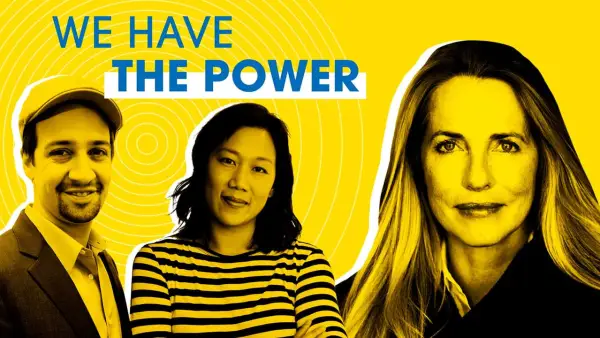
Let’s rethink giving
How can we reimagine philanthropy so that we create a future where there is justice and dignity for all? What are the root causes of the issues and how do we encourage the participation of many and not just a few?
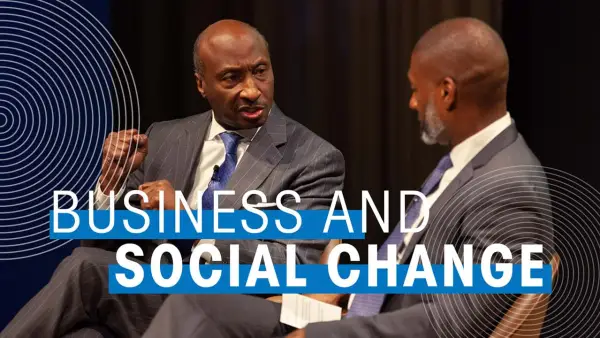
The business of justice featuring Kenneth Frazier and Charles Blow
Kenneth Frazier, CEO of Merck and Co, believes one of the greatest injustices in our society is the health disparities experienced by women of color. A zip code is more likely to determine health outcomes than genetic code. Frazier uses philanthropy to address mortality rate and wants to see more medical personnel listen to their women patients and patients of color.
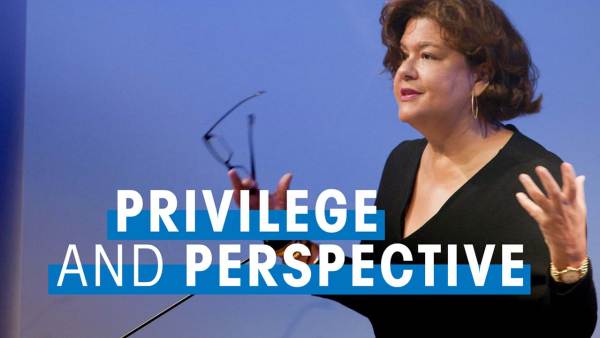
The privilege of perspective featuring Elizabeth Alexander
Elizabeth Alexander, president of the Andrew W. Mellon Foundation, on art, activism, and acknowledging adversity.
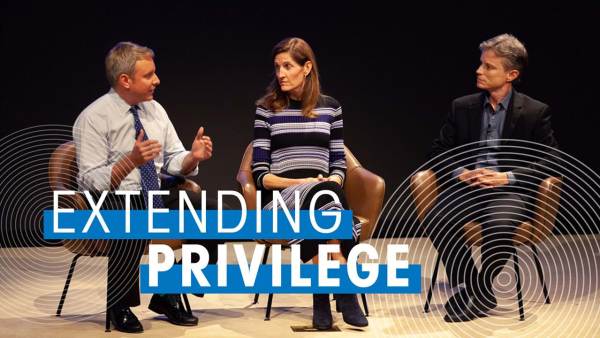
Extending privilege featuring Valerie Rockefeller and Henry Ford III
Henry Ford III, trustee of the Ford Foundation, and Valerie Rockefeller, chair of the Rockefeller Brothers Fund, discuss transforming philanthropy for the 21st century. The families have seen the value of impact investing and believe in partnerships to increase the difference that can be made.
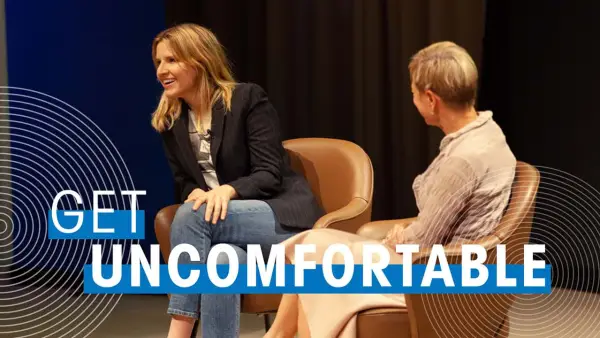
Getting proximate featuring Tara Westover and Hilary Pennington
Tara Westover, author of “Educated,” sees a disconnect between the rural and urban parts of the United States. She believes philanthropists need to be more proximate to the issues they care about, and that spending time with people who aren’t like you is key to disrupting inequality.
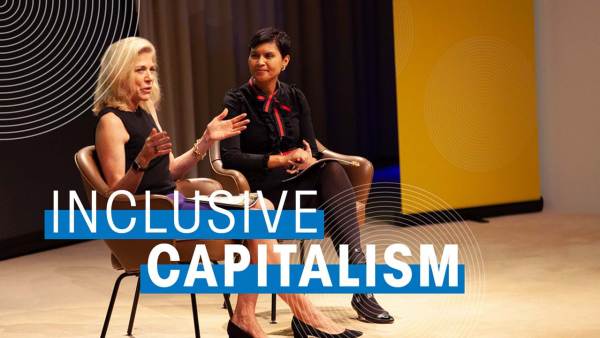
Can capitalism ever really be inclusive? featuring Lynn Forester de Rothschild and Stephanie Mehta
The top 1 percent of the United States controls 42 percent of the national wealth. Lynn Forester de Rothschild, founder of the Center for Inclusive Capitalism, explains that reimagining the economy and making it a sustainable, inclusive system that leads to strong economic growth requires reform.
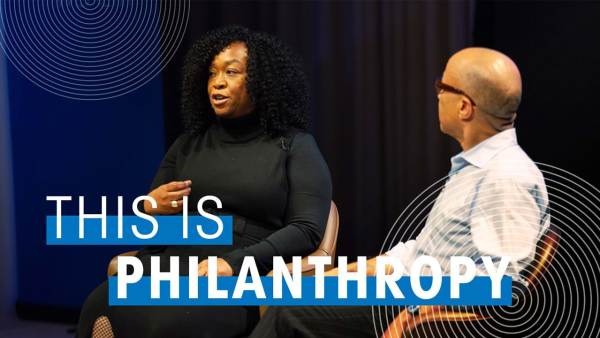
This is what a philanthropist looks like featuring Shonda Rhimes and Darren Walker
Writer and producer Shonda Rhimes has seen the power storytelling has to make change through her work, which centers marginalized people and issues. Rhimes believes philanthropy sets an example others can follow, and says supporting organizations that are already on the ground doing the work is key.
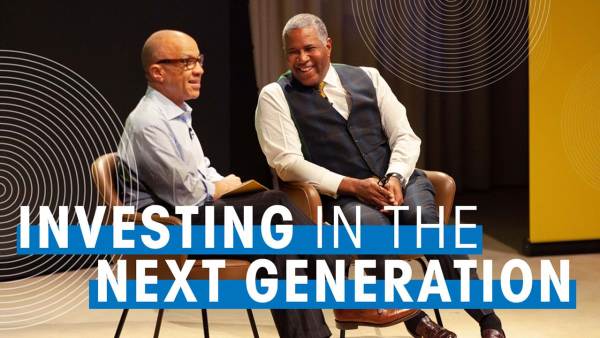
Catalyzing the potential of our time featuring Robert Smith and Darren Walker
Through philanthropy, Robert Smith, CEO of Vista Equity Partners, has alleviated the burden of student debt for a graduating class. He says private philanthropy can help address public policy challenges, such as student loan debt, and is a disruptive opportunity that liberates people to contribute to society in positive ways.
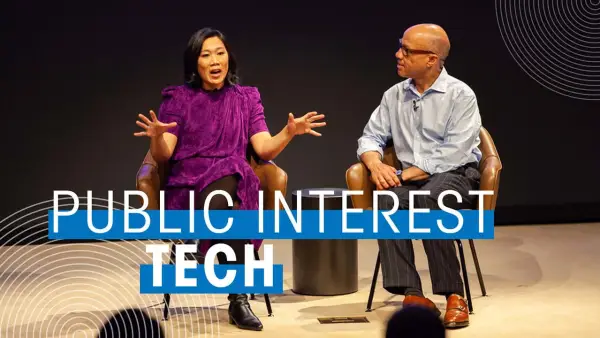
Tech funders changing philanthropy featuring Priscilla Chan & Darren Walker
The top 1 percent of the United States controls 42 percent of the national wealth. Lynn Forester de Rothschild, founder of the Center for Inclusive Capitalism, explains that reimagining the economy and making it a sustainable, inclusive system that leads to strong economic growth requires reform.
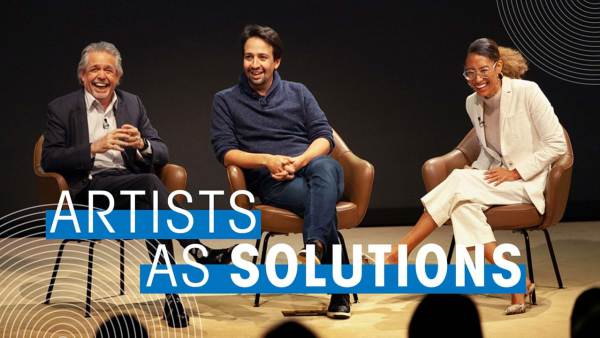
Why artists shouldn’t stay in their lane featuring Lin-Manuel Miranda, Luis Miranda Jr. and Elaine Welteroth
Composer and actor Lin-Manuel Miranda believes all art is political. He and his father, Luis A. Miranda Jr. of the MirRam Group, see the value philanthropy has to empower communities that may have been neglected, and allow them to share their stories through the arts, like Puerto Rico did after Hurricane Maria.
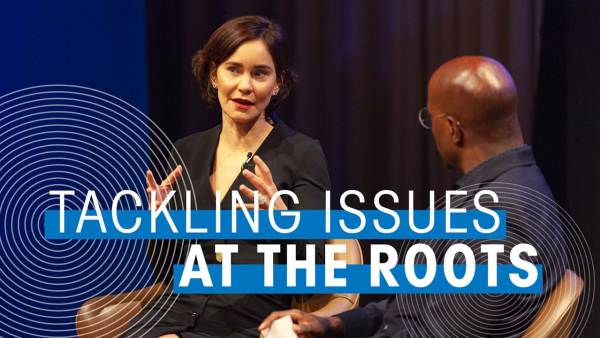
Good philanthropy needs government featuring Laura Arnold and Van Jones
Laura Arnold, co-chair of Arnold Ventures, believes policy change is the lever that will lead to sustainable change. She says we need to attack the systems that are creating the injustices we see, like criminal justice. Philanthropy can create better alternatives that governments can adopt.
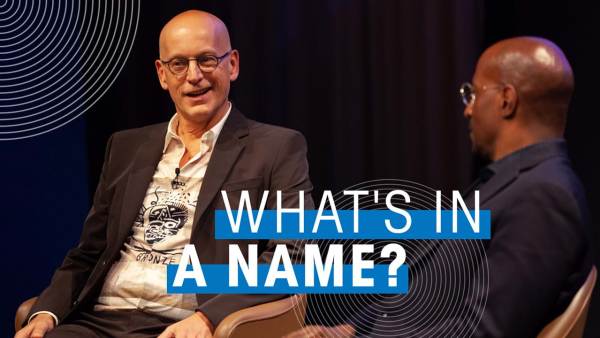
The power of a name featuring Jon Stryker and Van Jones
As a philanthropist, Jon Stryker, president of the Arcus Foundation, believes the act of naming gives power and influence to the work that is supported through his gifts. His philanthropy supports those on the frontlines of justice, providing resources and power to those who need it most.
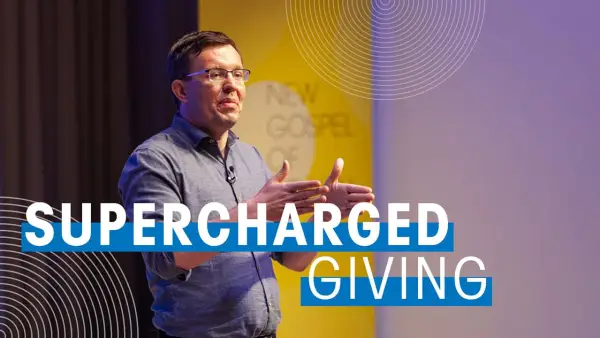
The new power of philanthropy featuring Henry Timms
CEO of Lincoln Center Henry Timms asks how philanthropy can supercharge civic engagement. Timms, who started Giving Tuesday, says trust-based philanthropy needs to shift from generosity to justice, driving more participation from more people, and encouraging meaningful ways to participate and collaborate.
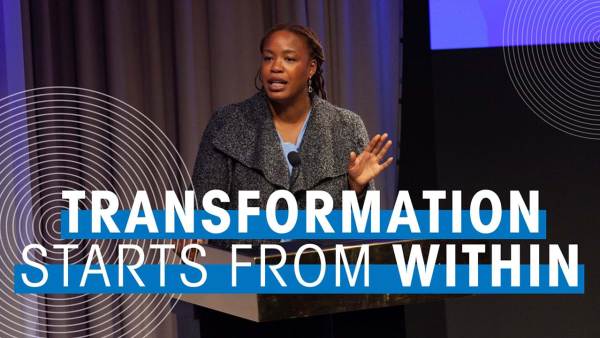
Transforming organizations from the inside featuring Heather McGhee
Heather McGhee, distinguished senior fellow at Demos, shares her experience of working to make the Demos think tank more diverse and led by people of color. Institutional racism, however slight, drives inequality, she says, so transformation needs to be a must-have and not a nice-to-have.
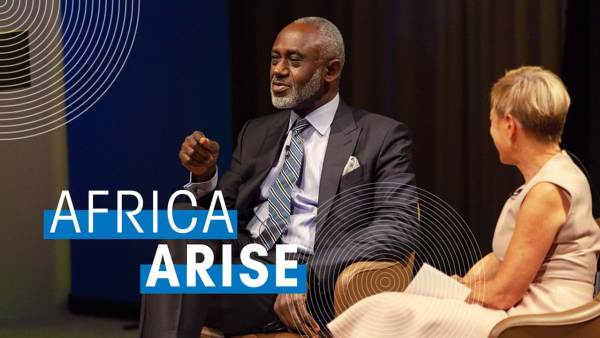
Africa, your time is now featuring Gbenga Oyebode and Hilary Pennington
Ford Foundation trustee Gbenga Oyebode has seen the value of impact investing on the African continent. He believes philanthropy should not just be giving, but investing with a social impact and an economic return. Giving is inherently part of African culture, but needs to be more strategic and collaborative.
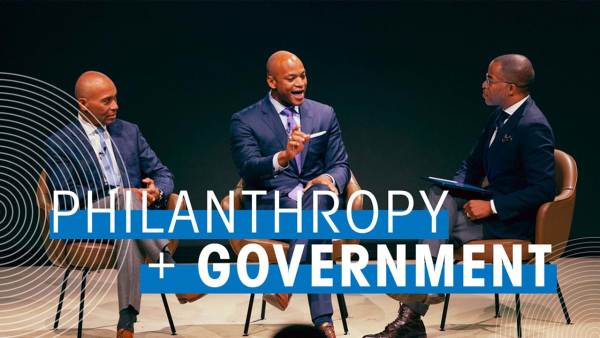
Why good government needs philanthropy featuring Deval Patrick and Wes Moore with Jonathan Capehart
Wes Moore, CEO of Robin Hood, and Deval Patrick, managing director of Bain Capital, see philanthropy working hand-in-hand with government in the fight for equality. Philanthropy can often provide the initial capital needed while government can take over and scale the solution.
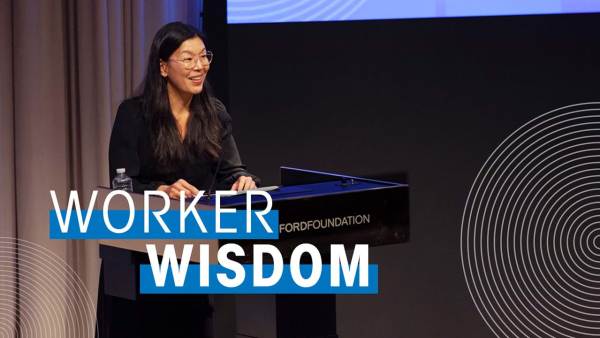
Bringing hidden labor to light featuring Ai-Jen Poo
Ai-jen Poo, executive director of the National Domestic Workers Alliance, says the sector of caregivers and domestic workers continues to grow. Building a future of work that works for all is centered on justice-based philanthropy and not a generosity model.
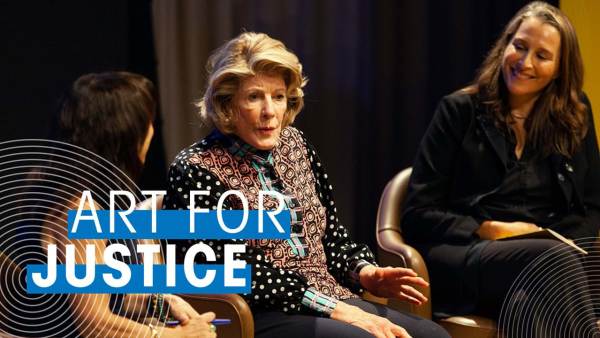
Art for Justice featuring Agnes Gund and Catherine Gund with Maria Hinojosa
The Art for Justice fund was created to help end mass incarceration. Founder Agnes Gund says philanthropy is about addressing issues like this. Catherine Gund believes art has an important part to play in the fight for racial justice and can help change the policies that led to mass incarceration.
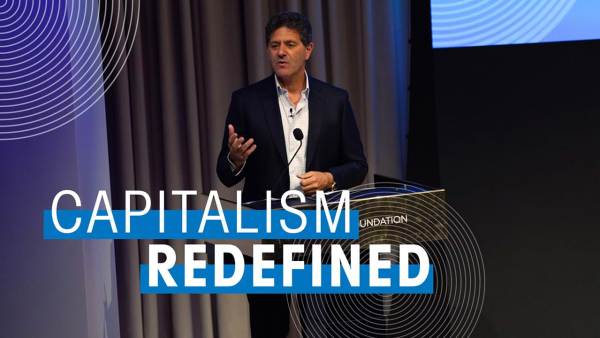
Capitalism redefined featuring Nick Hanauer
Entrepreneur Nick Hanauer asks us to reimagine the economy. He believes we need to change our beliefs about the economy to create a more just, more equitable society for all. By choosing better economic beliefs, we can change society for good.
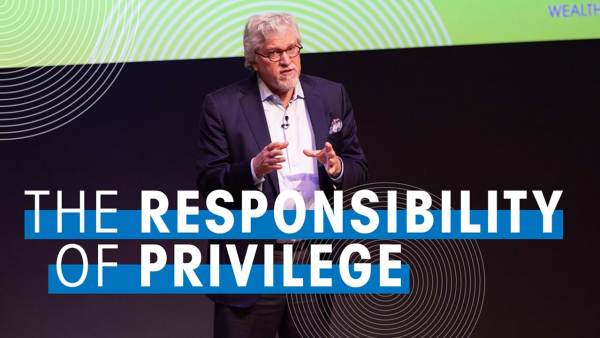
On using power and privilege for change featuring Jeff Raikes
Jeff Raikes, co-founder of the Raikes Foundation, says dismantling racism requires philanthropy to ditch its colorblind approach. People in power need to acknowledge that privilege is invisible to those who possess it. Privilege and power need to be transformed into a force for changing our society for the better.